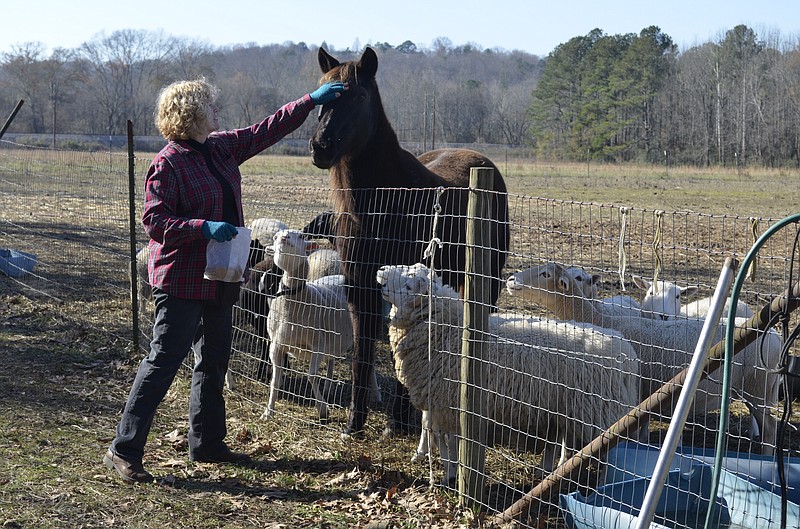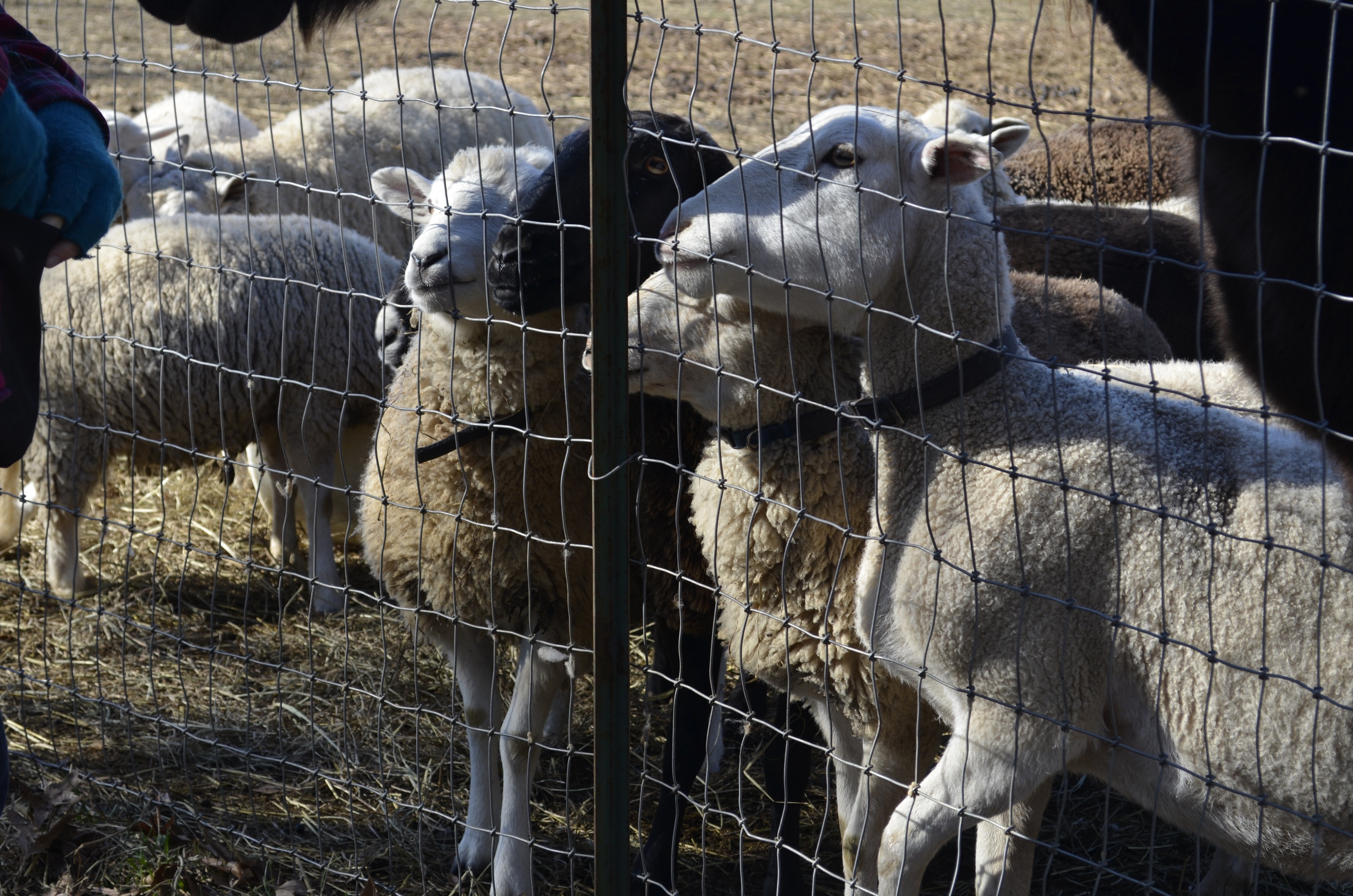From the front, D.B. Reisen's home looks no different than any other lining Davidson Road.
Step out back, however, and you'll find a dozen chickens clustered in a shed, 15 sheep grazing under the protection of a coyote-kicking guard horse, and a trio of cattle watching it all lazily from behind a hot-wire fence.
The scene is not completely uncommon along the well-trafficked corridor. A handful of Reisen's neighbors house goats, donkeys and chickens of their own.
Reisen and the small band of urban farmers are hoping more such agricultural developments are soon to come.
Chattanooga city officials recently approved an ordinance that makes it easier for residents to establish urban farms within city limits.
Before the Dec. 5 vote, property owners needed to have a minimum pasture area of 20 acres to rezone their lot to an A-1 Urban Agricultural Zone. Now, property owners only need a minimum of 5 acres.
The 20-acre requirement was initially set as a precaution, said John Bridger, executive director of the Chattanooga-Hamilton County Regional Planning Agency. But with more cities embracing urban agriculture, he agreed the size requirement "could be considered overly strict" - as the original ordinance itself stated.
"So we felt pretty comfortable lowering it to 5 [acres]," Bridger said, pointing to Knoxville's required minimum of 10 acres and Nashville's minimum of 5 acres as examples.
The agricultural zoning enables applicants to keep horses, mules, cows, pigs, goats, sheep, emus, ostriches and rabbits on their property. They are also able to have fowl such as ducks, guineas and turkeys.
The only tract of land within city limits zoned A-1 before the change was Crabtree Farms in Clifton Hills, which sits on 22 acres.
The matter was brought to city planners' attention soon after Reisen and her 29-year-old son, Aaron Coolidge, discovered that their 17.5-acre property on Davidson Road was not zoned for agricultural use.
The duo purchased the land, now called Coolidge Urban Farm, in February. Reisen planned to use the property to continue her 20-year farming career while handcrafting items like wool dryer balls to sell through her business, Bo Peep's Black Sheep.
"The ad said 'Bring The Horses,''" Reisen said, referencing a promotional message for property on Davidson that can still be found on real estate websites Zillow and Trulia. "That's what real estate people say to sell acreage to people with horses and the like."
Both sites do, however, specify the need for a special exemptions permit.
Reisen said it wasn't until June that she learned her new neighborhood had been annexed by the city years before, and that the land once designated for agricultural use had been deemed by the city as R-1, for residential development.
"It just went R-1 and nobody knew it," she said of the assigned zoning. "So not only were we in violation, but so was everyone else. Everyone."
Reisen, Coolidge and two other nearby property owners with livestock have since rectified the issue through the recent zoning ordinance - but not everyone is thrilled with the prospect of urban farming.
Neighbors on either side of Coolidge Urban Farm publicly opposed the rezoning, citing an incident this fall where a bull and chicken wandered into their backyards due to a lack of fencing, and expressing concerns about a possible decrease in property values.
To protect against such issues, Bridger noted the ordinance also establishes a stipulation that requires applicants to submit a site plan before their rezoning can be approved. The plan will disclose how agricultural activities will affect surrounding land, and determine whether applicants are in accord with new setback requirements, which call for new barns and feed storage facilities to be at least 150 feet from any residential building on or off the property. Existing structures are excluded from the setback requirement.
After reviewing the revised site plan for Coolidge Urban Farm, Tiny Ray, one of the two neighbors to voice concern, said she felt everything appeared to be in compliance with city code.
Still, she warned officials that the ordinance "could become a problem for all nine districts in the event you are unable to make owners comply."
"There has been no effort to comply with city code," Ray wrote in an email read before the council in October. "How can we be assured of compliance to new city code?"
Reisen said she is hopeful that the new restrictions will serve as guidelines to help ensure compliance moving forward. She also hopes to see more landowners take advantage of the A-1 option for farming or green space, which she praised for its ability to "just allow the land to be."
Email Myron Madden at mmadden@timesfreepress.com.


